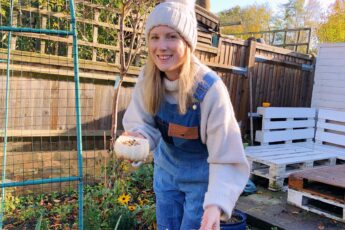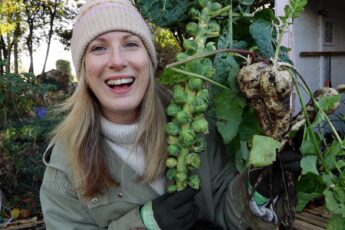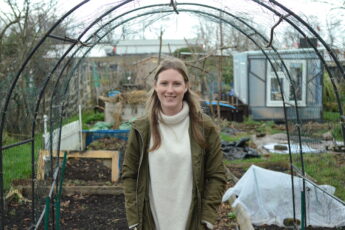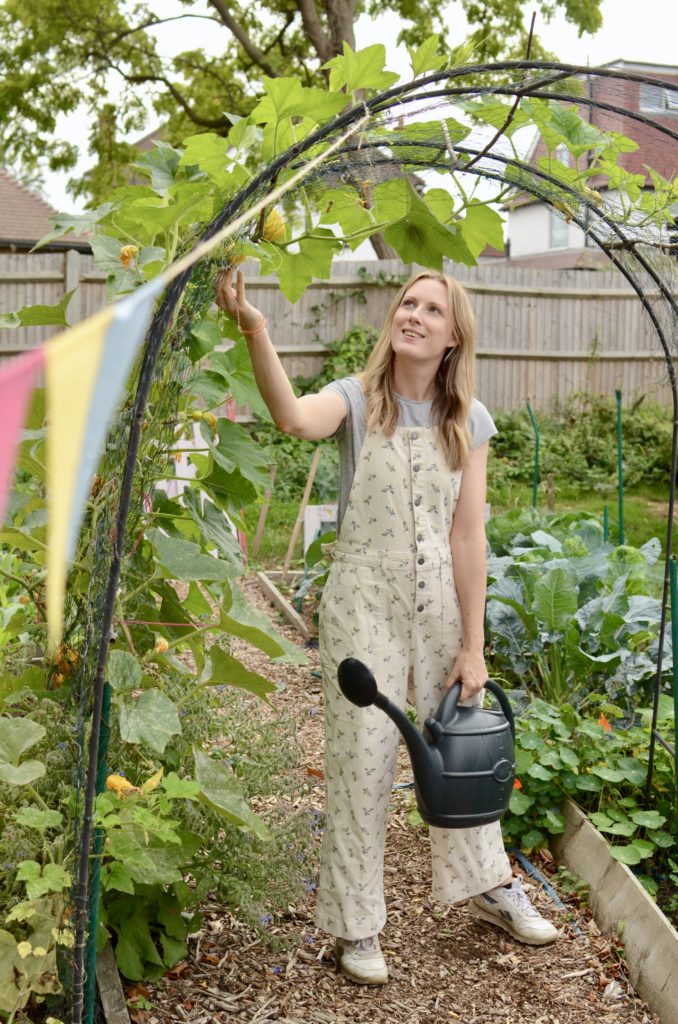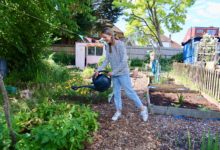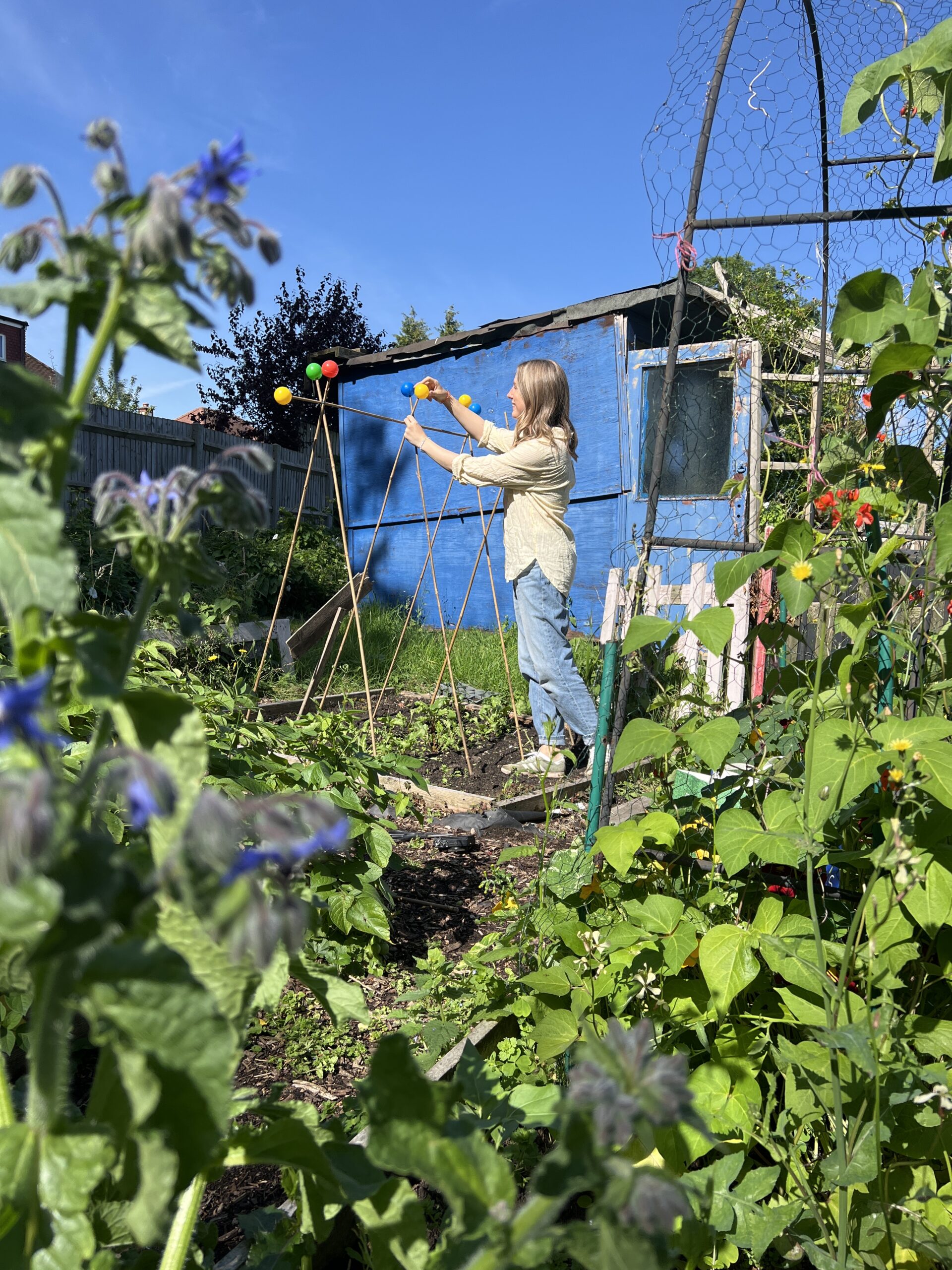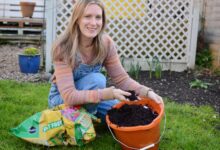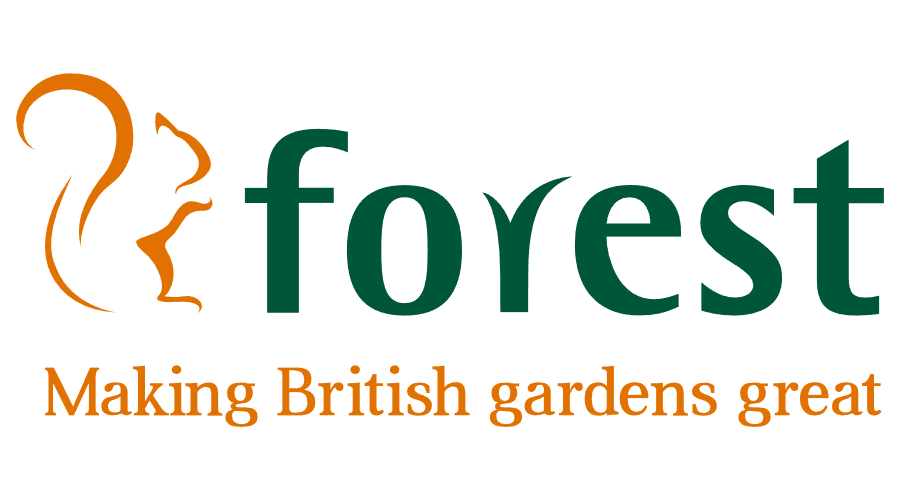
Winter is often perceived as a dead season in the garden. My mother would close up the backdoor leading out to our garden sometime in November, shortly after firework night, and it would remain closed until the following spring. It taught me that gardens were solely for the warmer months and as such, obsolete to us during the winter.
I think winter gets a bad reputation. Unless it’s snowing of course. Everyone loves snow, for a few days at least, right up until it becomes that slippery, muddy sludge that lingers around for longer than we would like it to reminding us that the sun hasn’t come out to play for a while.
I’ve had my allotment plot for two winters now. The first was when I had first been given it and I was in my absolute obsessive state of clearing it, building the raised beds and desperately trying to prepare it for growing in the spring. Winter was sort of lost on me that year, the crackling of twigs under my feet only serving as a reminder of the vast amount of clearing I had yet to complete.
The second winter was different. It marked the end of my first growing season. I watched as my plants finally gave up the ghost, surrendering to the power of the first frosts. My plot crept into a well-rehearsed slumber, it’s work done for this year. Raised beds became frosted rectangles of hardened top soil, twinkling in the late winter sun. Butterflies and bees were gone, leaving behind silence, a stark contrast to the gently humming soundtrack from summer.
But there was still work to be done. At first, I didn’t really see it. Winter, as I had been taught, was no time for garden work. But still, I kept visiting my plot every day. I sat, drank hot chocolate, listened, reflected, and I began to notice the work that needed to be done. The pond had frozen over and needed breaking with a hammer so that birds could still get a drink or, if they dared, take a freezing bath once in a while. In fact, the birds needed feeding, their summer food sources having been taken away so harshly from them. I refilled bird feeders almost daily and then cursed at the sly little squirrels who would ravage them the second my back was turned. It seemed the squirrels needed feeding too!
Purple sprouting broccoli that had been almost dormant through the summer months, sitting unnoticed in the corner of a raised bed, suddenly came to life. They grew taller, formed little broccoli heads and needed to be regularly re-staked to stop them from toppling over, which some did a couple of times. The purple heads gave new colour and life to the plot, an exciting new shiny toy in the corner to play with.
One day as I made my way down the narrow path to my plot, I noticed a small gathering of pigeons by the broccoli bed. As I approached, they immediately took flight, scattering in every direction like teenagers from a house party broken up by the police. It wasn’t until I got nearer I realised it hadn’t been a social gathering. They’d stripped one of my broccoli plants clean. I netted the rest of them under the watchful eye of the pigeons who were glaring down at me from their tree branches with innocent expressions on their faces and full bellies of my broccoli.
My cabbages sat strong and proud in their spot, looking like ornamental statues. As frost melted away on their leaves, tiny drops of water gathered in small bubbles, flourishing the plants with tiny jewels that glistened and shone in the winter sunshine.
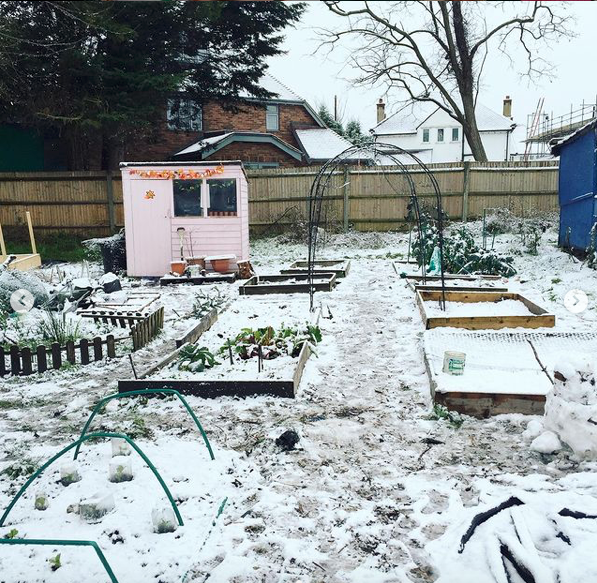
Nature hadn’t gone anywhere. It was all around me, nestled snugly inbetween the frosted branches and naked trees, venturing out in small bursts to steal my broccoli or take a drink from my pond. I had never really noticed it before, not during the winter months.
I think, especially here in the UK, winter is seen as a hibernation period for us humans as well as animals. But instead of batting down the hatches and staying home, the modern day working world continues, leaving us having to tear ourselves from the warmth of our beds and stumble reluctantly to our desk jobs. Our worlds become these bleak, grey existences as we impose these limited travel restrictions upon ourselves turning to shopping centres and coffee shops instead of the green spaces we became accustomed to during the warmer months.
This way of thinking used to have a massive effect on my mental health. My husband and I would talk about the dread we would feel as winter approached, knowing our worlds were about to become significantly smaller.
So when my eyes were opened to the profound beauty that exists within nature during winter, I started to push against the society norms. We didn’t stop going to the park, instead we wrapped up in a dozen layers, threw on our wellies and went out anyway undeterred by the mud that awaited us.
In winter, you notice things within nature you didn’t before. Different trees and plants, once hidden by summer loving varieties, now out in bloom ready to showcase their best features. Red berries, long dried grass, so much mud! Winter is truly beautiful. A time to reflect, to plan for the future, but most importantly a time to enjoy and see the beauty that’s all around us, at every single time of year.


